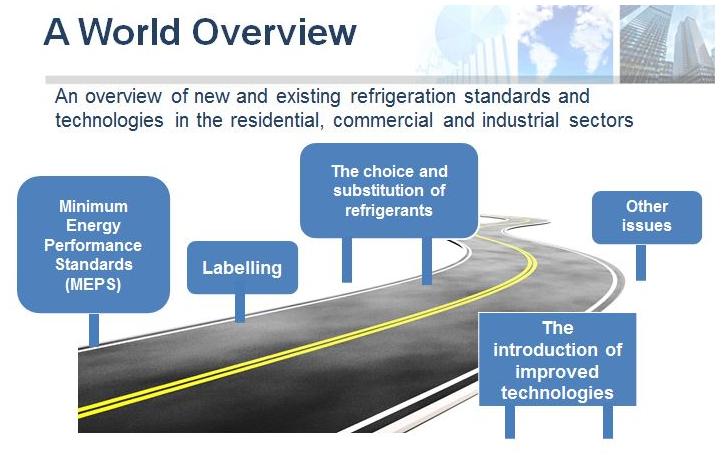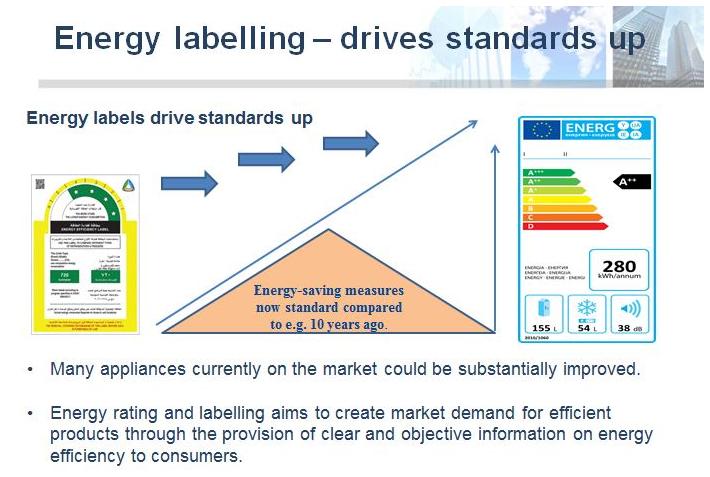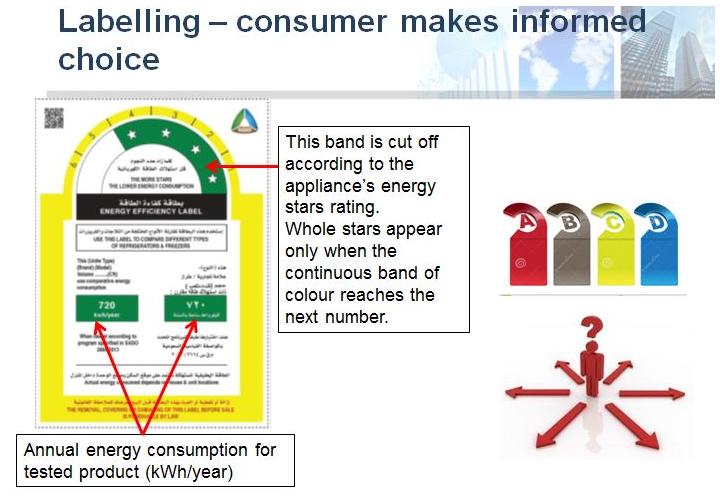Refrigeration market in Saudi Arabia
This article was originally published by BSRIA in October 2015.
The first phase of a study carried out by BSRIA for the Saudi Ministry of Water and Electricity looked at the domestic, commercial and industrial refrigeration market in Saudi. It found that major efficiency gains are expected to be achievable.
Saudi Arabia is one of the World’s largest markets in the volume of imports. Each year, it receives huge quantities of refrigeration and freezing products from all over the world. Many imports are not subject to quality checks and some products manufactured locally are being sold directly into the market without satisfying any standards.
The Ministry of Water and Electricity is tasked with achieving the best services in the electricity sector and wishes to provide better protection for electricity users, achieving optimal use of energy. As such, the Ministry is looking at the influence of low-efficiency appliances in the refrigeration sector to help avoid the load increasing in the electric network throughout the year.
BSRIA’s aim was to filter the best global products and solutions to achieve the best result for Saudi. BSRIA was able to draw on its own experience from its World Refrigeration Reports that focus on the market for commercial and industrial refrigeration in nine key countries: China, Brazil, France, Germany, India, Italy, Russia, the UK and the US, and also took views from International trade bodies and associations in the refrigeration sector. It also set up a panel of experts from major global players especially in Europe and the USA.
BSRIA and the Saudi Arabia agency AMAD also analysed global and local legislation for refrigeration to get the best for Saudi. A high level of importance is placed on safety and environmental issues with particular emphasis on the reduction of water and electricity.
Key areas include:
- Domestic refrigeration: fridges, freezers and fridge freezers.
- Commercial refrigeration: integral cabinets, remote cabinets, medical cabinets, vending machines and water coolers, walk in cold rooms and cold stores.
- Industrial refrigeration: distribution warehouses, process chillers (including for oil and gas).
Hugh Brenchley, Senior Researcher, World Intelligence Market (WMI) at BSRIA, said: “Key findings are that, while the efficiency of a lot of household refrigerators currently on the market in Saudi Arabia compares favourably with the rest of the world, there is still room for improvement especially for low cost products at the lower end of the efficiency scale. The picture for commercial refrigeration products is more complex due to the variety of configurations and bespoke products some of which are manufactured in the Kingdom. Nevertheless, it is very likely that major efficiency gains can be achieved.”
Hugh added: “Some minimum energy performance standards (MEPS) in the domestic sector need to be recalibrated to support the better quality products already available in the market. In the commercial sector there is minimal regulation and a strong argument for introducing MEPS. The impact of revised MEPS for the domestic sector and new MEPS for the commercial sector including whether to adopt US or European standards will be considered in the next stages of the project. All in all, the client was very happy with the work carried out so far.”
The choice of refrigerants and the substitution of refrigerants are also becoming important in investment decisions.
A summary report will be published at the end of the project – outlining the introduction of more efficient technologies and solutions that are adapted to local conditions. They will cover:
- Support for research and development to create new products or their components.
- Designing (or revising) energy-test methods to reflect and accommodate technical innovation.
- Organising buyer demand to expand the market for available high-performing products.
- Encouraging and incentivising manufacturers to introduce new products.
--BSRIA
[edit] Related articles on Designing Buildings Wiki
- Absorption refrigeration.
- Air conditioning.
- Air conditioning inspection.
- Air handling unit.
- Chilled beam.
- Chiller unit.
- Chilled water.
- Cold storage construction market.
- Cooling systems for buildings.
- Compression refrigeration.
- Constant air volume.
- Evaporative cooling.
- Fan coil unit.
- R22 phase out.
- Refrigerant selection.
- Refrigeration.
- Variable air volume.
- Variable refrigerant flow.
Featured articles and news
What they are, how they work and why they are popular in many countries.
Plastic, recycling and its symbol
Student competition winning, M.C.Esher inspired Möbius strip design symbolising continuity within a finite entity.
Do you take the lead in a circular construction economy?
Help us develop and expand this wiki as a resource for academia and industry alike.
Warm Homes Plan Workforce Taskforce
Risks of undermining UK’s energy transition due to lack of electrotechnical industry representation, says ECA.
Cost Optimal Domestic Electrification CODE
Modelling retrofits only on costs that directly impact the consumer: upfront cost of equipment, energy costs and maintenance costs.
The Warm Homes Plan details released
What's new and what is not, with industry reactions.
Could AI and VR cause an increase the value of heritage?
The Orange book: 2026 Amendment 4 to BS 7671:2018
ECA welcomes IET and BSI content sign off.
How neural technologies could transform the design future
Enhancing legacy parametric engines, offering novel ways to explore solutions and generate geometry.
Key AI related terms to be aware of
With explanations from the UK government and other bodies.
From QS to further education teacher
Applying real world skills with the next generation.
A guide on how children can use LEGO to mirror real engineering processes.
Data infrastructure for next-generation materials science
Research Data Express to automate data processing and create AI-ready datasets for materials research.
Wired for the Future with ECA; powering skills and progress
ECA South Wales Business Day 2025, a day to remember.
AI for the conservation professional
A level of sophistication previously reserved for science fiction.
Biomass harvested in cycles of less than ten years.
An interview with the new CIAT President
Usman Yaqub BSc (Hons) PCIAT MFPWS.
Cost benefit model report of building safety regime in Wales
Proposed policy option costs for design and construction stage of the new building safety regime in Wales.
Do you receive our free biweekly newsletter?
If not you can sign up to receive it in your mailbox here.




























